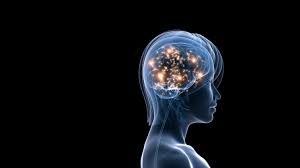The Complex Nature of Intelligence
Intelligence is a multifaceted and intriguing aspect of human cognition that has fascinated scholars, scientists, and philosophers for centuries. While commonly associated with problem-solving abilities and knowledge acquisition, intelligence encompasses a wide range of cognitive skills and capabilities that contribute to adaptive behavior and successful navigation of the world.
One prominent theory of intelligence is the concept of general intelligence, often referred to as “g factor,” proposed by psychologist Charles Spearman. According to this theory, individuals who excel in one cognitive task are likely to perform well in other tasks as well, suggesting an underlying general mental ability that influences overall intellectual functioning.
However, intelligence is not solely determined by a single factor. Contemporary research suggests that intelligence is a complex interplay of various components, including analytical reasoning, creativity, emotional intelligence, and practical problem-solving skills. This broader perspective acknowledges the diversity of human cognitive abilities and the different ways in which individuals demonstrate their intellectual strengths.
Furthermore, the notion of multiple intelligences, introduced by psychologist Howard Gardner, challenges the traditional view of intelligence as a unitary construct. Gardner proposed that individuals possess distinct forms of intelligence, such as linguistic intelligence, logical-mathematical intelligence, spatial intelligence, musical intelligence, bodily-kinesthetic intelligence, interpersonal intelligence, intrapersonal intelligence, and naturalistic intelligence.
It is important to recognize that cultural factors also play a significant role in shaping our understanding and assessment of intelligence. What may be considered intelligent behavior in one culture may not be perceived similarly in another cultural context. This highlights the need for a culturally sensitive approach to studying and evaluating human cognitive abilities.
In conclusion, intelligence is a complex phenomenon that defies simple categorization or definition. It encompasses a diverse array of cognitive skills and capacities that interact in intricate ways to shape our thinking and behavior. By embracing the complexity of human intellect and recognizing the various forms of intelligence present in individuals across different cultures and contexts, we can gain a deeper appreciation for the richness and diversity of human cognitive potential.
Exploring Intelligence: Definitions, Types, Measurement, Influences, and Emotional vs. Cognitive Aspects
- What is intelligence and how is it defined?
- Are there different types of intelligence?
- Can intelligence be measured accurately?
- Is intelligence primarily determined by genetics or environment?
- How does emotional intelligence differ from cognitive intelligence?
What is intelligence and how is it defined?
The question “What is intelligence and how is it defined?” is a fundamental inquiry that has spurred extensive debate and exploration within the fields of psychology, cognitive science, and philosophy. Intelligence is often described as the ability to learn, understand complex ideas, adapt to new situations, and solve problems effectively. However, defining intelligence in a precise and universally accepted manner remains a challenging task due to its multifaceted nature. Various theories of intelligence exist, ranging from the traditional view of a general mental ability to more contemporary perspectives that emphasize multiple forms of intelligence. Ultimately, the concept of intelligence is dynamic and evolving, reflecting the diverse ways in which individuals demonstrate cognitive skills and abilities across different domains.
Are there different types of intelligence?
The concept of multiple intelligences has been a subject of considerable interest and debate in the field of psychology. While traditional views of intelligence often focused on a single general factor, contemporary research, as proposed by psychologist Howard Gardner, suggests that there are indeed different types of intelligence. Gardner’s theory posits that individuals possess distinct forms of intelligence, such as linguistic, logical-mathematical, spatial, musical, bodily-kinesthetic, interpersonal, intrapersonal, and naturalistic intelligence. This perspective challenges the notion of a one-size-fits-all approach to measuring intelligence and emphasizes the diversity of cognitive abilities that individuals may exhibit across various domains.
Can intelligence be measured accurately?
The question of whether intelligence can be accurately measured is a topic of ongoing debate among psychologists and researchers. While traditional intelligence tests, such as IQ tests, provide numerical scores that are often used to assess cognitive abilities, critics argue that these assessments may not capture the full spectrum of human intelligence. Factors such as cultural bias, test-taking skills, and the narrow focus of standardized tests have raised concerns about the validity and fairness of intelligence measurement. Some experts advocate for a more holistic approach to assessing intelligence, considering multiple intelligences and diverse cognitive abilities beyond what traditional tests measure. Ultimately, the quest for accurately measuring intelligence continues to evolve as researchers explore new methodologies and perspectives in understanding the complexity of human intellect.
Is intelligence primarily determined by genetics or environment?
The question of whether intelligence is primarily determined by genetics or environment is a longstanding debate in the field of psychology and cognitive science. While genetics certainly play a role in shaping an individual’s cognitive abilities through inherited traits and predispositions, environmental factors such as upbringing, education, social interactions, and life experiences also significantly influence the development of intelligence. Research suggests that both genetic and environmental factors interact in complex ways to contribute to an individual’s overall intelligence. It is important to recognize the dynamic interplay between nature and nurture in shaping human cognition, as both factors play crucial roles in determining the extent and expression of one’s intellectual capabilities.
How does emotional intelligence differ from cognitive intelligence?
Emotional intelligence and cognitive intelligence represent distinct but interconnected aspects of human cognition. While cognitive intelligence primarily pertains to analytical reasoning, problem-solving skills, and knowledge acquisition, emotional intelligence focuses on the ability to perceive, understand, manage, and express emotions effectively. Cognitive intelligence is often associated with traditional measures of intellectual capacity, such as IQ tests, while emotional intelligence emphasizes interpersonal skills, empathy, self-awareness, and social competence. Unlike cognitive intelligence, which is more focused on logical and analytical thinking, emotional intelligence plays a crucial role in navigating social interactions, managing relationships, and making sound decisions based on both rationality and emotional awareness. In essence, while cognitive intelligence deals with how well we process information intellectually, emotional intelligence revolves around how well we handle emotions in ourselves and others to achieve personal and social success.




